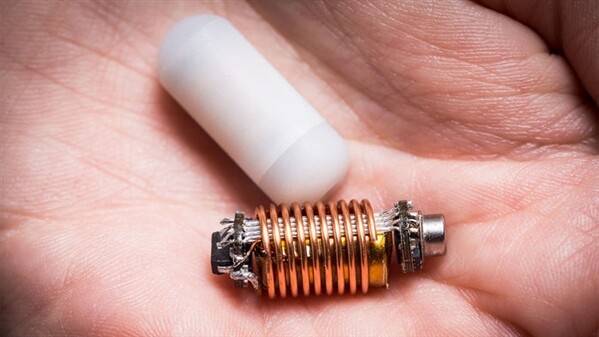If our microbial community in the body can provide dietary advice, keeping food and medicines in line with microbes to maintain our health, isn't that good? To achieve this goal, scientists need to better understand how food and microbes interact and how they affect the chemical composition of the intestines.

Image source: RMIT Communications
Now, a small capsule can pass through the digestive tract and measure the concentration of gas in the intestine.
A paper published online January 9 in Nature-Electronics reported that swallowable electronic capsules can detect different gases in the intestines to identify changes in the individual's diet. This device may be used to help understand the effects of diet and pharmaceutical supplements and to help create a personalized, customized diet.
Swallowable sensors are an emerging technology that has the ability to play an important role in monitoring human health, but the capabilities of these devices are still relatively limited.
Kourosh Kalantar-Zadeh of the Royal Melbourne Institute of Technology in Melbourne, Australia, and colleagues and collaborators have developed a small swallowable capsule containing several gas sensors, a temperature sensor, a small computer (microcontroller), and an RF transmitter. And several batteries.
In a small human pilot test (six healthy volunteers), it has been shown that when the device travels throughout the intestine, these sensors are able to detect oxygen, hydrogen and carbon dioxide, Transfer gas concentration data to a pocket receiver that is carried by volunteers. The gas concentration data especially reflects the gas produced by the microbial community in the intestine during the food fermentation process, and thus can be used to distinguish volunteers with high fiber content and low content in the diet.
The researchers also said that the results emphasize that electronic capsules can detect different fermentation patterns in the human body, which indicates that the sensor can also be used to monitor an individual's response to a customized diet.
However, turning this data into concrete recommendations will be more complicated. But the researchers suggest that these gas readings may one day help design a healthier food and may diagnose digestive problems.


